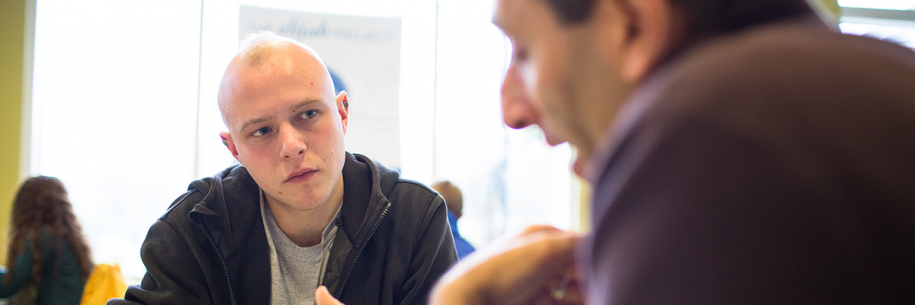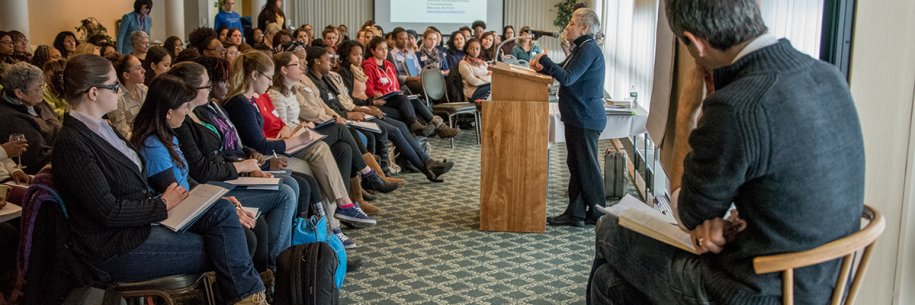
Breadcrumb
- Essential Partners
- Who We Work With
- Higher Education
- Become a Partner
How to Work with Essential Partners
A global leader in dialogue around divisive issues, Essential Partners brings three decades of innovation and experience to every project.
In the classroom, dialogue deepens learning and encourages intellectual humility. In campus life, it helps diverse groups build a community that draws on the strength of different views, values, and identities. Dialogue generates a campus culture of resilience and serves as the foundation for more coherent, inclusive, longer-lasting collective action.
From institution-wide projects to small group trainings, there are several ways to bring the benefits of Essential Partners' approach to your campus.

Building Capacity to Navigate Conflict
On campuses large and small, public and private, across the United States and abroad, Essential Partners has trained faculty, students, and administrators to have more meaningful dialogues about the issues that matter most. We invest in your ability to foster a campus culture that embraces differences in views, values, and identities.
We have tested our approach in conflicts across the globe, helping people in opposition recognize the stake they have in each other and in their communities. The goal isn't to find common ground or to change minds, but to help see the other side as complex human beings who also care deeply about their campus. EP's approach helps people in conflict arrive at new understandings and repair frayed relationships. Over 30 years, we have helped communities address explosive topics such as
- Political partisanship
- Race and ethnicity
- Gender and sexuality
- Religious differences
- Economic inequality
- Israel and Palestine
- Intellectual diversity
If you’re facing a campus in conflict, or want to build your capacity to respond when conflicts arise, reach out schedule a free phone consultation.

Dialogic Classroom: Faculty Training
The dialogic classroom improves student participation, content retention, and academic outcomes. It gives students more clarity about their own views and opens them up to beliefs that differ from their own.
“After using this approach in my classroom,” says Southern Methodist University faculty member Jill DeTemple, “I am now more willing, and more able, to engage students in meaningful conversations about potentially contentious issues. I build these conversations into the class so students learn to speak about their experiences and also learn to listen and learn from those with whom they might disagree.”
There are two ways to attend a training:
- Attend a summer workshop at the Essential Partners headquarters
- Bring Essential Partners to your campus
If faculty are interested in learning about a new classroom paradigm, you're ready for Essential Partners to lead a training on your campus. Get in touch to find out how.
Individual faculty members interested in the dialogic classroom approach can register now for a Dialogic Classroom training.

Transform Your Campus Culture
Ease tensions around divisive issues and foster a more cohesive campus community by integrating the principles of dialogue into both classroom teaching and campus life.
Faculty trained in the EP approach have successfully led deeper, more inclusive, less divisive conversations about these polarizing topics. They've brought more students into the classroom conversation while improving their learning outcomes. The dialogic classroom has also helped students feel more willing to engage across different views, values, and identities.
Essential Partners can reinforce this throughout campus life. We have successfully trained student leaders, resident life staff, and administrators to lead healthier conversations about explosive issues, from conflicts in the Middle East to racial and ethnic diversity, from gender identity to science and faith.
Essential Partners can help your campus build a more cohesive, inclusive culture by fostering curricular and co-curricular opportunities for dialogue, building capacity for formal and informal difficult conversations, and co-creating spaces for conversations with diverse stakeholders across campus.
Take the first step. Reach out to schedule a free initial phone consultation.